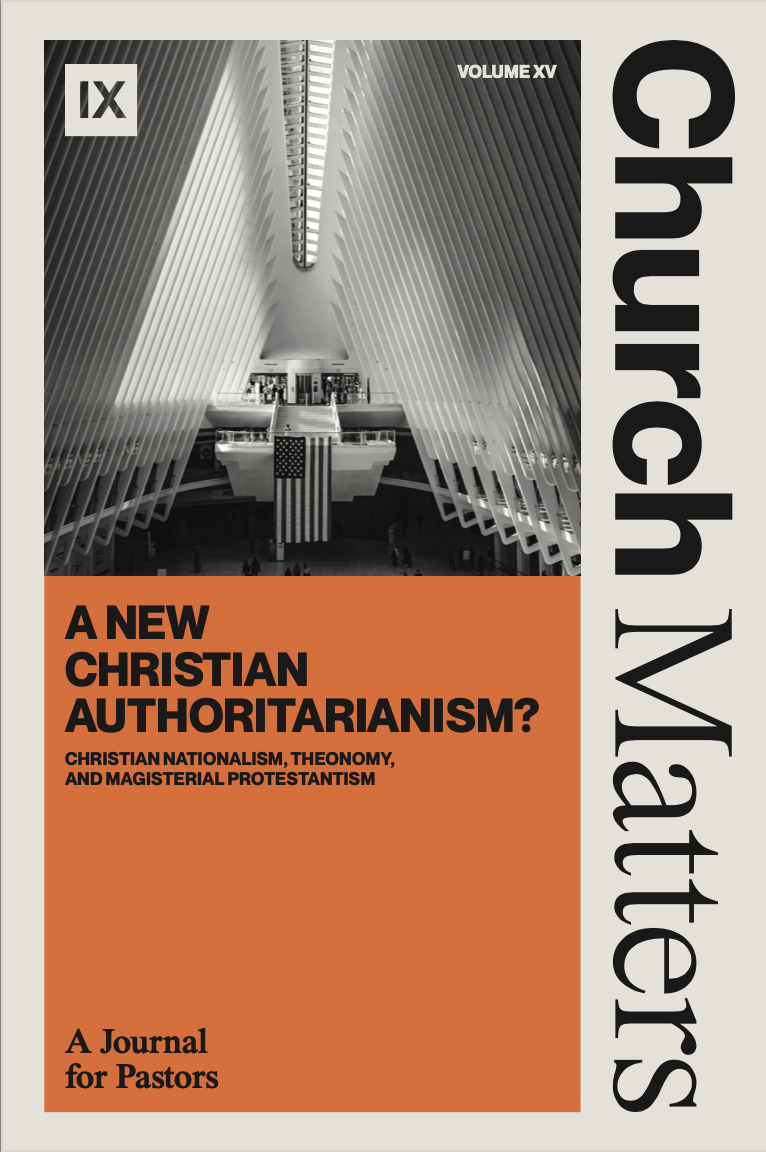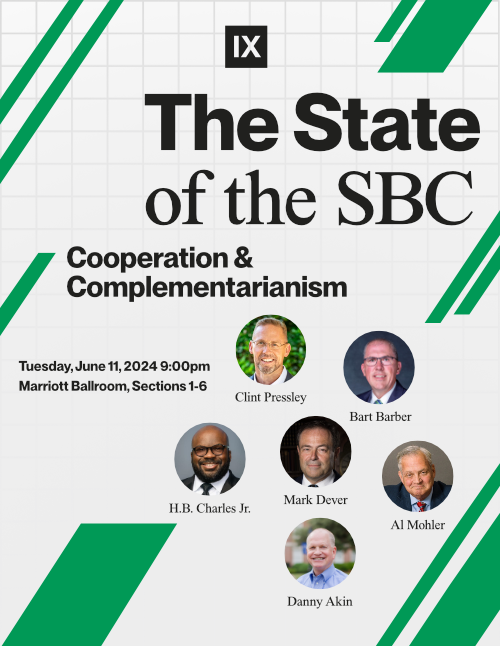To Study History, Exercise Virtue
Nessun maggior dolore
Che ricordarsi del tempo felice
Nella miseria.
– Dante, Inferno, Canto V, 121–123
“There is no greater pain than to remember happy days in days of misery.” Thus spoke Francesca da Rimini to Dante in the second circle of hell. Her husband murdered her for committing adultery with his brother. She faced an eternal afterlife enveloped in darkness and tormented by roaring hurricane winds, which recalled the way she and her lover Paolo Malatesta were carried in life by the winds of their passion. As Dante told the story, Francesca’s hopelessness dripped from her words; Paolo could muster no words at all but only weep bitterly.
Such is the power of nostalgia. Nostalgia yields vivid images that bless the imagination but can also give birth to despair. It is not quite history, nor is it really memory, and it is not merely a feeling. Nostalgia emerges when history, memory, and sentimentality meet.
As humans, we can all relate to the power of nostalgia in belief formation. We form our beliefs about reality based on a myriad of considerations. One of those considerations is our national identity. Who we are as Americans is integral to answering who we are as individuals, as members of families and communities, and even as Christians. National identity is not the only feature that matters, but it does matter a great deal because it at least in part defines what we have been, what we are, and what we aspire to be as human beings. And when considering who we are, we must assess our successes and failures honestly.
CHRISTIAN NATIONALISM’S RELIANCE ON NOSTALGIA
Christian nationalism offers one way to wrestle with our national identity. The past is an indispensable source in this pursuit. Historian Allen C. Guelzo describes history as “the second question.” The first question a human being asks is, “What is that?” The second is about history: This eloquent and vivid insight into the essence of history might be rephrased as “Where did we come from?” What does our past tell us about who we are now and what we may be tomorrow? Christian nationalism attempts to construct a frame of reference for answering Guelzo’s “second question.”
Unfortunately, Christian nationalism frequently taps nostalgia as a substitute for history. This is not always the case. After all, Christian nationalism is complex. It has taken many forms over time (see my article “The Many Faces of Christian Nationalism”). Not every form has depended on the tertium quid produced by the alchemy of history, memory, and sentimentality. But a Christian nationalism that is oriented toward the past often does. Those of us who have paid attention to the degradation of American culture resulting from what Carl Trueman calls “the rise and triumph of the modern self” may be excused from short flights into nostalgia for happier times in the past. But nostalgia can really only serve as a funhouse mirror of the past. To get at the questions of “who are we” and “where did we come from,” we must turn to responsible Christian historical thinking.
Nostalgia has taken two significant forms over time: historical and rational. Christian nationalists influenced by the 1977 book by Peter Marshall and David Manuel, The Light and the Glory, and the 1979 formation of the Moral Majority lean toward historical nostalgia. More recently, with the 2022 publication of Stephen Wolfe’s The Case for Christian Nationalism, nostalgia has taken a rationalist turn.
The Moral Majority Christian nationalism of Jerry Falwell, Tim LaHaye, John Eidsmoe, Benjamin Hart, David Barton, and others[1] relies on historical arguments. Their thesis that America was founded as a Christian nation (the Christian America thesis) orients the country to the past and employs a historical method known as a declension narrative. The Christian America writers seek to demonstrate that America was founded as a Christian nation. They proceed by looking to the faith of the Founders and the Revolutionary generation and then casting the America of the early republican period in ideal terms. Declension narratives like this rely on cherry-picking the historical record. They despair over how far America has fallen from its noble and pure Christian roots—and finally, they call Christians to recover the Christian America that has been lost.
Such nostalgia is historical because its proponents make principally historical arguments. Historical arguments are a posteriori, which means they are inductive, concern themselves with probabilities rather than certainties, and rely on evidence taken from experience in the past. I have argued in other places against the Christian America thesis, that America was not founded as a Christian nation, but as a nation with religious liberty. My counter argument is also historical and inductive, using evidence from experience to arrive at a more probable conclusion. The Moral Majority tradition of Christian nationalism, as a declension narrative, is nostalgic because the evidence the writers use to set up their narrative (while usually solid and reliable) is not balanced by any equally substantial and reliable evidence that goes against their narrative. Thus, the Christian America writers employ the logical fallacy of special pleading, rendering their arguments (in my view) improbable.
I have spent nearly twenty years in academia thinking about the Christian America thesis in historical terms. But there emerged a new form of Christian nationalism in 2022. We have yet to see how influential Wolfe’s argument will be. Still, if social media is any indication, his book has already significantly impacted the American Protestant scene. Wolfe’s argument is also nostalgic, but he majors on using deductive, rational arguments to present a model for Christian nationalism rather than pointing to the experience of a specific Christian nationalism in American history (though a posteriori is not entirely absent in his line of argument). How, then, is his argument nostalgic?
Wolfe’s deductive argument for Christian nationalism is framed by sixteenth, seventeenth, and eighteenth-century Reformed political theology, especially that of John Calvin, Johannes Althusius, Francis Turretin, Samuel Willard, and others. Wolfe establishes premises informed by premodern Calvinist theology (as opposed to modern Calvinist theology such as that of Jonathan Edwards or Charles Hodge, for example) to arrive at a precise definition of Christian nationalism, civil law, magistracy, and the role of government. Since Wolfe does not mainly appeal to historical experience but to syllogisms informed by the logic of premodern Reformed thought, he is not arguing for probabilities. Instead, he is arguing for certainties. In other words, like a geometric proof, if his starting point is given, his premises are sound, and his argument is valid, then his conclusion must be true. But even though his argument is rationalistic and a priori, he still looks to the past for support, namely, the premodern Reformed tradition. This is what I am calling rational nostalgia.
To arrive at an inevitable conclusion, Wolfe goes to the world of the seventeenth century—a very different world than our own—and imports the ideas from the seventeenth century directly into the twenty-first. Frozen in time and timeless, those ideas are supposed to serve as the basis for Christian nationalism. His retrieval begins with his own justifiable frustration and despair at the present-day monstrosity of a pagan nationalism that swallows everything it sees. However, Wolfe then looks to the past as the source for hope, ignoring the profound foreignness of the past and wrongly applying the static past to argue for an establishmentarian, authoritarian Christian state in the present.
Both the historical and rational nostalgic postures are conservative. But not all conservatisms are alike. In his 1956 classic Conservatism: From John Adams to Churchill, Peter Viereck divides conservatism into two schools of thought. The first, Burkean evolutionary conservatism, recognizes the inevitability of change but seeks to control the forces of change through deliberation, constitutional procedure, and order, as these are defined by tradition. This is the dominant conservative tradition in American history from John Adams to William F. Buckley. The second, Viereck styles “Ottantottism.” Viereck credits the French thinker Joseph de Maistre as the founder of this school. He coins the term “ottantottism” in noting the story of the reactionary King Charles Albert of Piedmont-Sardinia, who muttered to himself, “ottantotto,” which is Italian for “88.” Viereck writes, “Thereby he meant to say: all problems would vanish if only the world turned its clock back to 1788, the year before the [French] Revolution.”[2]
While Wolfe would like to claim to be neither conservative nor traditionalist, he is unavoidably a conservative of the Ottantottist brand. So are the advocates of the Christian America thesis. Ottantottists see history as a story of decline and seek to recover what is lost (Wolfe’s “revitalization”). Their appeal is made attractive by the emotional pull of nostalgia. But nostalgia cannot inform our historical thinking, whether we look to history to make inductive or deductive arguments.
CHRISTIAN HISTORICAL THINKING REQUIRES VIRTUE
I am not denying that evidence-based historical arguments are necessary when we are considering our American identity. After all, pure logical arguments for an order based on religion, which make no appeal to historical experience for definition or justification, will not do because they entail immanentizing the eschaton. Look no further than the philosophy of Johann Gottfried von Herder (whom Wolfe cites favorably), G. W. F. Hegel, or Karl Marx for evidence of this entailment. The human attempt to join heaven and earth, however rightly or wrongly conceived, through the means of the nation or the state inevitably leads to totalitarianism, the death of states, and the death of their citizens. The only bridge between heaven and earth is the “ladder . . . the earth with its top reaching to heaven; and behold, the angels of God were ascending and descending on it” (Gen. 28:12). That ladder is fulfilled in the Lord Jesus Christ: “Truly, truly I say to you, you will see the heavens opened and the angels of God ascending and descending on the Son of Man” (John 1:51).
Since history is necessary to both Christian and American identity, to engage in responsible Christian historical thinking, we have to exercise virtue. We must exercise the theological virtues of faith, hope, and charity. We also must exercise the classical virtues of temperance, courage, wisdom, and justice. The exercise of virtue in historical thinking will guide us into answering the necessary questions that emerge when considering our national identity.
First, let us pause and reflect on the question: why think historically in the first place? Is there any biblical mandate to study the past? While the verse phrased, “thou shalt study history” is, admittedly, missing from the canon of Scripture, we do have a firm biblical basis for studying history. First, we are created in the image of God (Gen. 1:26), which, in part, means we have the power of perspective in time. This power is uniquely human and reflects in us (albeit limited and marred by sin) God’s sovereign power of perspective over the space-time-matter continuum that he created. Second, our faith is historical, not mythological, and not mystical. It is based on historical events, people, and ideas that occurred, lived, and were expressed in real time and real places. According to John 1:1–14, Christ’s Incarnation occurred in time even though the Lord Jesus himself is the Eternal Son of the Father. Here we see that the spiritual and material, the temporal and the eternal, are bridged together by the Word, Jesus Christ. Third, God commands us to remember the past (Isa. 46:8–10). All that was, is, and is to come is for the good of those who love God and are called according to his purpose (Rom. 8:28). We see that great truth in the past, and so we have hope that in both the present and the future, God remains sovereign over space, time, and matter and is faithful to fulfill all His purposes. We remember the past because, in the study of the past, we find hope (Isa. 44:21–28) and wisdom (Prov. 4:5–9).
How, then, does virtue relate to the study of history? Remembering that we are created in God’s image, that the redeemed share union with Christ and each other in the church, and as such, we follow the law of love. We exercise the theological virtues of faith, hope, and charity as we consider the past. Faith allows us to depend on God and obey his word. We recognize the biblical basis for studying history and act on it based on our faith in God and his Word. Related to faith, hope looks forward to the promises God has made to us in Christ. Therefore, we do not read history as a collection of random events but have the assurance that every effect of every cause begins with the First Cause and that history has a telos. When we read of events, especially the troubling ones, we do not come away with fear for the future but hope in the sovereign God, who is transcendent yet active in his world. And charity is the greatest of the theological virtues for studying history. Our study of history follows the contours of Paul’s writing in 1 Corinthians 13:4–7. We do not pursue self-interest at the expense of the dead or rejoice in unrighteousness. We rejoice in the truth and seek to tell the truth in all its complexity, even when it is hard.
Modernity would have us turn our backs on the past, rejecting the people of the past as morally inferior. In his Social Contract, French sentimentalist Jean-Jacques Rousseau envisioned human society as being comprised of the living only. He began his work with the memorable phrase, “Man is born free, yet everywhere he is in chains.” The “chains” enslaving people comprised social conventions and traditions from previous generations. In a 1776 appendix to his influential revolutionary tract Common Sense, the radical Thomas Paine celebrated American independence by writing, “We have it in our power to begin the world over again.” And Karl Marx, in an 1852 essay, wrote in a similar spirit of rejecting the wisdom of the past: “The tradition of all dead generations weighs like a nightmare on the brains of the living.” In contrast, British thinker Edmund Burke conceived of society as comprising more than one or two living generations. In his Reflections on the Revolution in France (1790), he described society as united under a contract “not only between those who are living, but between those who are living, those who are dead, and those who are to be born.” The Scriptures commend the same, and if such a conception of human society is right, then faith, hope, and charity are necessary for any consideration of the past.
And what of the classical virtues—temperance, courage, wisdom, and justice? These virtues are further expressions of the theological virtues of faith, hope, and charity when we exercise them for the gospel’s sake. Temperance in historical study involves controlling passions like triumphalism or condemnation. It is characterized by patience and the ability to accept circumspectly the successes, failures, and especially the quotidian dealings of the people of the past. With courage, we start with the recognition that the world of the past is vastly different from our own, and because it is so different, it often makes us uncomfortable. Uncomfortable realities of human sin, like slavery, war, violence, and oppression, were (and remain) unavoidable, and any historical study requires that we confront these realities directly. That takes determination and moral strength. It also requires joy because in confronting the painful events of the past, we shed the light of truth on them and the truth always liberates. Wisdom guides us into drawing sound conclusions about the implications of the past on today’s world and the world of the future. Wisdom also entails humility in our judgment, remembering that we are no more and no less fallen in sin than those from the past. Finally, justice involves treating our historical subjects with respect, refraining from hasty generalizations, cherry-picking for the sake of preconceived agendas and ideologies, or idolizing one’s heroes and condemning one’s villains. History is not a moral arbiter. There are no right or wrong sides of history. History is our making sense of the past, not a bludgeon to subdue our ideological opponents. Justice helps us make sense of the past in ways that foster self-examination, not self-righteousness.
VIRTUE AS A DEFENSE AGAINST NOSTALGIA AND CYNICISM
When we think about who we are as Americans, where we have come from, and where we are going, we must draw from history. To think about American identity is to think about American history. And in thinking about history, there are at least two extremes against which we are to guard: nostalgia and cynicism. Nostalgia causes us to idealize the people and times of the past, to ignore the fact that the past world was just as cursed by sin as the present world. Nostalgia directs us to ignore the outrages and frightful thoughts and actions of the people we count as heroes and to excoriate those who would remind us that even the great men and women of the past were deeply complex, flawed people in need of a Savior. It is nostalgia that leads us to idolize our nation, finding in its history a divine origin and seeking to restore that which was lost without thought of the cost and by authoritarian means if necessary.
On the other hand, thinking about the past can encourage cynicism. We can look at the people of the past as morally backward and inferior, criminal, and inhuman. Their hypocrisies we take to be evidence of their falsehood, thus rendering both the values and the people that held them to be illegitimate and void of meaning. In their ignorance, superstition, hypocrisy, and villainy, the people of the past are guilty of both the outrages of the past and the reverberating effects of those outrages in the present. Therefore, they are to be condemned, canceled, struck from the nation’s collective memory, and pronounced dead, not only in fact but also in name. Those defending them must also be considered outlaws on the wrong side of history. If nostalgia begets national idolatry, then cynicism begets national denunciation. Criminal origins mark the national past, and those crimes must be purged without considering the cost and by authoritarian means if necessary.
To be faithful to the gospel, we must orient ourselves to the future, not the past. This does not make us progressives in the modern sense because we are not looking for an immanent eschaton, a utopia of our own making. We are looking for the return of Christ. That is our hope. We have all our eggs in that basket. We know that only Christ will make the wrong things right. Our hope is not found in pining for a past we wish had existed through inductive or deductive means. Declension narratives based on nostalgic sentiments are not hopeful because they are not true. We study history to make sense of it, to gain wisdom from it, and to see the faithfulness of God demonstrated in the lives of those who are now dead but were once just like us—”afflicted in every way, but not crushed; perplexed, but not despairing; persecuted, but not forsaken; struck down, but not destroyed” (2 Cor. 4:8).
Those who have made conservative historical and rational arguments for Christian nationalism are perplexed but, unfortunately, seem to be despairing. Committed Christians of every stripe agree with their diagnosis of contemporary America. The pagan nationalism[3] of contemporary times is godless and the enemy of the church and human civilization writ large. But the answer to pagan nationalism cannot be reactionary or counter revolutionary. We do not use the same methods as the utopian revolutionaries of the left, which are authoritarian, destructive, and totalitarian. Totalitarianism, whether directed by atheists or Christian Nationalists, is undiluted evil. Atheistic and religious totalitarianism have this in common—both purport to lead their people to the highest good. Persecution follows dissent from the state’s definition of the highest good. Ultimately, who do you want holding the pliers, ready to pull your fingernails out by the roots in the prison cell after you’ve been detained for not taking your medicine, i.e. breaking the civil law meant for your “good”—the drag queen apparatchik or a Christian prince?
When—not if—we are persecuted for our faith, our hope will not be found in the past. Our hope will not be found in the Christian prince who sallies forth to rescue us from the pagans. Instead, our hope is found in Christ and the life he purchased for us with his own blood once for all. If I am to have my fingernails torn out with pliers by the jailer, I need hope like that to sustain me.
In the meantime, I think historically as a Christian and am informed by the virtues—faith, hope, charity, temperance, courage, wisdom, and justice. These help us to guard against the extreme vices of nostalgia and cynicism in our historical thinking as we come to grips with what it means to be an American. They protect us against idolizing ourselves. Idolatry is the common element that combines nostalgia and cynicism, demonstrating that while they are distinguishable, they are also parallel. Virtue wars against pride and virtue will see us through to the final victory. In that great truth, we have hope.
* * * * *
[1] Not all of the Christian nationalist writers in what I am calling the Moral Majority tradition of Christian nationalism were formally part of the Moral Majority. My moniker of “Moral Majority tradition of Christian nationalism” refers to the body of writings arguing that America was founded as a Christian nation, a concept I called the “Christian America thesis” in my book One Nation Under God? An Evangelical Critique of Christian America (Eugene, OR: Pickwick, 2011).
[2] Peter Viereck, Conservatism: From John Adams to Churchill (Princeton: Nostrand, 1956), 11.
[3] I have argued that there exists a pagan brand of nationalism, as Wolfe has. See John D. Wilsey, “Progressive Nationalism,” Public Discourse (February 2, 2022), https://www.thepublicdiscourse.com/2022/02/80366/.









